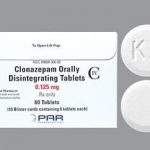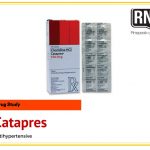
Contents
Feeling Sick with Breast Cancer? Symptoms & Treatment
If you’re experiencing persistent nausea, fatigue, loss of appetite, or unexplained weight loss, consult your doctor.
What Are Breast Cancer Symptoms?
Common signs of breast cancer include:
- Lump in the breast or underarms
- Thickening or swelling of the breast
- Dimpling of the skin over the breast
- Redness or flaky skin in the nipple area or breast
- Pulling in of the nipple
- Nipple discharge
- Change in size or shape of the breast
- Pain in the breast or nipple
Risk Factors for Breast Cancer
While the cause of breast cancer is unknown, certain factors can increase the likelihood of developing the disease.
Modifiable risk factors for breast cancer include:
- Alcohol
- Smoking
- Physical inactivity
- Obesity (especially after menopause)
- Having your first child after the age of 30
- Abstaining from breastfeeding
- Hormone replacement therapy
- Prolonged oral contraceptive pill use
- Stress or anxiety
Non-modifiable risk factors for breast cancer include:
- Advancing age
- Increased breast density
- Genetic mutations
- Early start of menstruation
- Late menopause
- Radiation to the thoracic area
Stages of Breast Cancer
The stages of breast cancer help determine the extent and spread of the disease and guide treatment decisions. The stages are as follows:
- Stage 0 or carcinoma in situ:
- Ductal carcinoma in situ (DCIS):
- Abnormal cells found in the lining of the breast duct
- Noninvasive cells that have not spread beyond the duct
- In some cases, DCIS can become invasive and spread to other tissues
- Lobular carcinoma in situ (LCIS):
- Abnormal cells found in the breast lobules
- LCIS is rarely invasive
- LCIS in one breast increases the risk of breast cancer in the other breast
- Stage I:
- Tumor size is 2 cm or smaller
- Cancer has not spread outside the breast
- Stage II:
- Tumor size is larger than 2 cm but not larger than 5 cm
- Cancer detected in 1-3 axillary lymph nodes or lymph nodes around the breastbone
- Stage III:
- Cancer detected in 4-9 axillary lymph nodes or around the breastbone
- Cancer may have progressed to the chest wall and/or breast skin
- Stage IV:
- Cancer has spread to other parts of the body, such as the bones, lungs, liver, and brain
How Is Breast Cancer Treated?
Treatment for breast cancer depends on symptoms, age, type, and stage of the cancer. Treatment options may include:
- Surgery:
- Breast conserving surgery:
- Malignant tumor removal with surrounding normal breast tissue preserved
- Reshaping of residual breast tissue to enhance appearance
- Pedicled flap may be necessary to fill excision defect
- Mastectomy:
- Removal of the entire breast, including nipple and areola
- Modified radical mastectomy:
- Removal of the entire breast, including nipple and areola, as well as regional axillary lymph nodes
- Breast reconstruction:
- Restoration of the contour of the removed breast
- Reconstruction can be performed during or after breast cancer therapy
- Sentinel lymph node biopsy:
- Surgical procedure to assess cancer spread to the lymphatic system
- Lymph nodes are excised and examined for cancer using frozen section or regular histology
- Axillary lymph node dissection:
- Removal of lymph nodes in the armpit
- Often performed after sentinel node biopsy confirms cancer spread
- Radiation therapy:
- Use of strong beams of radiation to attack and kill tumor cells
- Chemotherapy:
- Use of cytotoxic drugs to attack and kill rapidly growing cancer cells
- Chemotherapy may be given before or after surgery to reduce tumor size and prevent recurrence
- Hormonal therapy:
- Inhibition of cancer cell growth through regulation of hormonal receptors
- Recommended for tumors that express specific estrogen and progesterone receptors
- Used after surgery and in advanced and recurring cases
- Targeted therapy:
- Use of drugs to target and kill specific abnormalities in cancer cells
- Often used in combination with chemotherapy for advanced cases
- Immunotherapy:
- Use of the immune system to fight the disease
- May be an option for triple-negative breast cancer
- Usually administered along with chemotherapy in advanced cases
- Clinical trials:
- Opportunity to participate in research studies for cancer treatment
- Consult with your doctor to explore available trials


